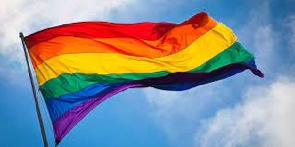The constant furor on the activities of other human beings who decide, with no
compulsion, to be bisexual, queer, gay, transgender, lesbian, etc. proves Ghana has not matured in democracy. Does democracy not mean the choice to live and
manifest rights freely? I believe so.
You like konkonte; someone enjoys fufu. Because you do not like fufu, you are disgusted by the fufu eater. Really? “One man’s food is another man’s poison”. Have we reflected on the meaning of this colloquial maxim before? If not, then we have to. But I know someone will ask “What happened to morality?” Well, there will be a whole piece on social and moral values of the Ghanaian.
But for now, please allow me to restate what is an obvious violation of human rights: suppressing the will of LGBTQ+ practitioners.
As Mar Robinson succinctly put it, “The vicious circle of human rights violations that lead to conflicts, which in turn lead to more violations, must be broken. I believe we can break it only by ensuring respect for all human rights.”
As societies progress towards inclusivity and equality, it's essential to extend these principles to all citizens, regardless of their sexual orientation or gender identity.
This article delves into the situation of LGBTQ+ practitioners in Ghana, highlighting the importance of acknowledging their humanity and advocating for their rights within the broader framework of human rights and social justice.
The LGBTQ+ community is made up of individuals with diverse backgrounds, experiences, and aspirations. In Ghana, just like in any other country, LGBTQ+
individuals are your neighbors, colleagues, friends, and family members.
It's crucial to recognize that their sexual orientation or gender identity does not define their worth as human beings. Like everyone else, they strive for happiness, love, acceptance, and the right to live their lives authentically.
Yes, they strive for anything good that non- LGBTQ+ persons strive for.
In Ghana, cultural norms, religious beliefs, and societal expectations have often created challenges for LGBTQ+ individuals in openly expressing themselves without fear of discrimination, violence, or legal repercussions.
However, it's important to remember that progress in human rights is
about acknowledging the rights of minority groups, even if their views differ from the majority. Aside the cultural norms and other socio-religious sentiments, some laws criminalise any form of unnatural carnal knowledge. See the Criminal Code, 1960 (Act 29), for example.
At the heart of the matter is the principle of human rights. All individuals, regardless of their sexual orientation or gender identity, are entitled to the same fundamental rights and freedoms. These rights include the right to life, liberty, and security of person, the right to be free from torture and cruelty,
inhuman, or degrading treatment, and the right to privacy, among others.
Upholding these rights is a cornerstone of a just and equitable society. The challenges faced by LGBTQ+ practitioners in Ghana are not unique to the
country. Many LGBTQ+ individuals around the world encounter similar struggles, and the global fight for LGBTQ+ rights remains unending. Advocacy groups and allies in Ghana and beyond are working tirelessly to raise awareness, challenge stigmas, and promote understanding and acceptance.
It's important to engage in open conversations that promote empathy and dispel
misconceptions about LGBTQ+ individuals. That is what true democracies do.
Promoting inclusivity and equality does not mean disregarding cultural or religious values. Rather, it involves finding common ground and respecting the rights of all individuals, regardless of their beliefs.
Societies evolve and with that evolution comes the understanding that diversity
should be celebrated, not suppressed. By embracing LGBTQ+ practitioners as part of the broader fabric of Ghanaian society, we move towards a more tolerant and
harmonious nation.
The path towards acknowledging and protecting the rights of LGBTQ+ practitioners in Ghana is an ongoing journey, but it aligns with the core principles of human rights and social justice.
By recognizing their humanity, advocating for their rights, and engaging in open
dialogue, we can create a society that is inclusive, diverse, and accepting of all its members. Let us remember that at the heart of every LGBTQ+ individual's experience is a shared longing for acceptance, understanding, and the freedom to be true to themselves.
In 1948, the Universal Declaration of Human Rights was made, with a picture of 2023 in mind. We need to safeguard the rights of every Ghanaian. I mean every citizen.
“This is a very powerful truth. All human beings are born free and equal in
dignity and rights”, Thoraya A. Obaid.
Opinions of Wednesday, 23 August 2023
Columnist: Gideon Aboagye



















